by Melissa Spear, Liz Cox, and Joel Tolman
Photos by Mel Morales
Common Ground is a charter school. But what does that mean?
Unfortunately, there has been a lot of negative — and, from where we stand, inaccurate — information about charter schools out there in the media. We’re often confused and discouraged by the attacks on charter schools like Common Ground, coming from people who we see as our allies in the work to help our state’s students succeed.
Common Ground has been lucky to stay (mostly) out of the fray. More than a few times in the last month, we’ve heard someone who loves Common Ground say something like this: “Well, Common Ground’s different — you’re not like other charter schools,” or “You’re the only charter school I like.”
The truth is, we’re proud to be a stand-alone, independent public charter school, rooted in the New Haven community. We’re proud to be a public school — yes, charter schools are public schools — working together with other public schools to teach our community’s kids. And we’re proud to be part of Connecticut’s diverse community of 18 charter schools — doing all they can to help 8,000+ students succeed, and showing that quality public education can take lots of different forms.
So, what does it mean that Common Ground is a public charter school? Here are a few key facts — click on each to learn more:
#1 We are accountable to the public — to you, and to the State of Connecticut.
#2 We are publicly funded — though that funding isn’t enough to meet our students’ needs.
#3 We are part of a non-profit organization, rather than a larger school district.
#4 All our students come to us by lottery.
#7 Because we are a public charter school, we need your support.
Still have questions? Leave them in the comments section at the end of this article, or shoot us an email.
#1 Being a public charter school means that we are accountable to the public — to you, and to the State of Connecticut.
 Last week, we turned in Common Ground’s application for charter renewal to the Connecticut State Department of Education — documenting our governance and financial practices, and sharing data on our school performance and student achievement, among other things. In February, a team from the State Department of Education will arrive at our site to examine our operation first hand — from our finances, to our teacher’s credentials, to the lessons being taught in our classrooms, to our curriculum as a whole. In March, the state will hold a public hearing, where anyone who wants to can stand up and share their opinion about Common Ground. Using all this information, and a pretty rigorous rubric, the State Department of Education will decide whether we’ve earned the right to continue to operate a public school.
Last week, we turned in Common Ground’s application for charter renewal to the Connecticut State Department of Education — documenting our governance and financial practices, and sharing data on our school performance and student achievement, among other things. In February, a team from the State Department of Education will arrive at our site to examine our operation first hand — from our finances, to our teacher’s credentials, to the lessons being taught in our classrooms, to our curriculum as a whole. In March, the state will hold a public hearing, where anyone who wants to can stand up and share their opinion about Common Ground. Using all this information, and a pretty rigorous rubric, the State Department of Education will decide whether we’ve earned the right to continue to operate a public school.
This five-year renewal process is just one of the many ways in which we are held accountable by the state, and by members of our community. All of our board meetings are open to the public. You can see when they’re coming up on our web site. You can also check out the annual report that we submit to the state on an annual basis to provide evidence that we’re fulfilling our responsibility to our students and the public.
 In fact, as a public charter school, Common Ground must meet most of the same requirements as other public schools. Our students take the same tests, and are held to the same standards, as every other Connecticut public school student. Our teachers are all certified public school teachers. Our school leaders are all certified by the State of Connecticut. And they are evaluated by the same set of professional standards in place at all public schools.
In fact, as a public charter school, Common Ground must meet most of the same requirements as other public schools. Our students take the same tests, and are held to the same standards, as every other Connecticut public school student. Our teachers are all certified public school teachers. Our school leaders are all certified by the State of Connecticut. And they are evaluated by the same set of professional standards in place at all public schools.
We are happy to be held accountable. Being held accountable ensures that we continue to earn the public’s trust, and continue to improve. There is always more we can do — as a school, and as a state — to serve our students.
#2 As a public charter school, we are publicly funded — though that funding isn’t enough to meet our students’ needs.
Common Ground — like all Connecticut charters — receives $11,000 per year from the State Department of Education. This funding is significantly less than per pupil expenditures by local school districts throughout the state. For example, New Haven — the district from which 65% of our students arrive — spent $17,052 per student last year. Federal funding, and special education fees from our students’ home districts, help make up some of this gap — about $1,700 per student per year. On top of this, we fundraise about $3,000 per student per year — to pay for the after-school programs, extra academic supports, part-time social work, and professional development that we think are necessary to help make our students deserve.
 There has been a lot of talk about charter schools “privatizing” public education. Common Ground does rely on private grants and donations to make up our funding gap. The truth is that public funding for charter schools isn’t sufficient, so we are forced to look for additional funding. If public funding of charter schools was adequate and equitable, we wouldn’t need to rely so much on private support.
There has been a lot of talk about charter schools “privatizing” public education. Common Ground does rely on private grants and donations to make up our funding gap. The truth is that public funding for charter schools isn’t sufficient, so we are forced to look for additional funding. If public funding of charter schools was adequate and equitable, we wouldn’t need to rely so much on private support.
As a publicly funded non-profit, and as a public school, we must demonstrate that we are using public funding well. All of our financials are subject to an external audit each year. Our most recent high school audit is up on our web site, if you want to check it out.
#3 Being a public charter school means that Common Ground High School is part of a non-profit organization, rather than a larger school district.
Common Ground is not part of a local school district. Instead, we are part of a non-profit organization, and are directly accountable to the State Department of Education. This means we have fewer layers of bureaucracy, and more flexibility in how we operate. We row together, and can turn the boat quickly.
 The State of Connecticut requires all charter schools to be operated as non-profits. There are no for-profit charters in Connecticut. In Common Ground’s case, this non-profit does more than just run a high school. In addition to our 180 high school students, Common Ground also helps thousands of our neighbors lead healthier, more sustainable lives through our community environmental education programs and our urban farm. As a result our high school students are able to participate in a wide variety of educational opportunities not found in a traditional public school setting.
The State of Connecticut requires all charter schools to be operated as non-profits. There are no for-profit charters in Connecticut. In Common Ground’s case, this non-profit does more than just run a high school. In addition to our 180 high school students, Common Ground also helps thousands of our neighbors lead healthier, more sustainable lives through our community environmental education programs and our urban farm. As a result our high school students are able to participate in a wide variety of educational opportunities not found in a traditional public school setting.
#4 As a public charter school, all our students come to us by lottery.
Admitting students by lottery is a requirement of all public charter schools in Connecticut. This is the same way that students get into public magnet schools. In fact, our New Haven students come to Common Ground through participating in New Haven’s magnet school lottery.
 We serve a diverse student body. This year, 73% of the young people learning at Common Ground are students of color, 65% come from the City of New Haven, and 52% qualify for free or reduced price lunch. Seventeen percent of our students qualify for special education supports, significantly above the state and city averages. Last year, the average Common Ground freshman entered 1.5 years below grade level in reading; students’ entering reading levels ranged from 3rd grade to post college. We love the challenge of engaging and educating this diverse student body.
We serve a diverse student body. This year, 73% of the young people learning at Common Ground are students of color, 65% come from the City of New Haven, and 52% qualify for free or reduced price lunch. Seventeen percent of our students qualify for special education supports, significantly above the state and city averages. Last year, the average Common Ground freshman entered 1.5 years below grade level in reading; students’ entering reading levels ranged from 3rd grade to post college. We love the challenge of engaging and educating this diverse student body.
Students and families are hungry for the kind of public education Common Ground offers. Last year, we had 222 students apply for open 51 spaces. Our students travel from as far away as Bridgeport, Waterbury, Branford, and Derby in spite of the fact that there’s no public funding for charter school transportation and families outside of New Haven have to provide their own transportation.
#5 As a public charter school, we have the responsibility to help all our students meet high standards — and the freedom to figure out how help them get there.
Common Ground is one of 18 Connecticut charter schools — designed as laboratories of innovation, testing out new ways to meet the needs of public school students. Every one of these schools is different, though each one shares a common goal: helping students succeed.
As a charter school, we aim to offer students and their families a genuinely different public school choice. We push every one of our students towards college success, and toward environmental leadership. Our students learn Shakespeare by performing alongside professional actors on an outdoor stage, and math by monitoring biodiversity in West Rock State Park. They intern with The Nature Conservancy and take on paid green jobs. They are pushed and supported as individuals to meet high academic standards.
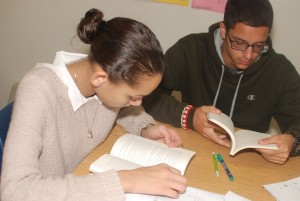 This mix of accountability and autonomy has led to some pretty dramatic results at Common Ground. Common Ground’s 4-year graduation rate (89.5%) significantly exceeds the state (85.5%) average.
This mix of accountability and autonomy has led to some pretty dramatic results at Common Ground. Common Ground’s 4-year graduation rate (89.5%) significantly exceeds the state (85.5%) average.
Between 2007 and 2014, our students have made some of the state’s most dramatic test score gains. These test score gains and excellent graduation rates earned Common Ground recognition as a Connecticut School of Distinction – one of the state’s 10 schools making the greatest progress toward state educational goals. In each of the last five years, 93% or more of graduates have been accepted to college or another post-secondary education program. In October, Common Ground was one of four Connecticut high schools to make Newsweek’s list of “Beating the Odds” schools, chosen for their track record in helping low-income students make successful transitions to college.
We honestly believe that we have made the gains we have because we are held to high standards, and because we have the freedom to figure out how best to meet those standards.
#6 Because Common Ground is a public school, we see educators at other public schools as our allies and colleagues.
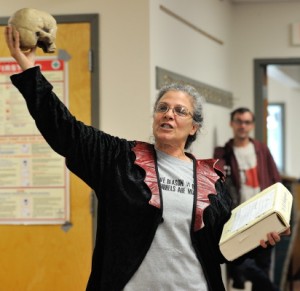 We are confused and frustrated by the us vs. them debate between public charter schools and other public schools. We care about the same kids and families as other local public schools. We respect the good work that educators do in local school districts, and we share many of their struggles. We partner with other public schools as often as we can, and believe charter schools and other public schools can learn from one another. For instance, more than 4,000 local public school kids come to our campus — located on an urban farm, at the base of a state park — for field trips and after-school programs each year. We’ve helped build school gardens and schoolyard habitats at a dozen local public schools, and worked with teachers at those schools to develop the skills they need to use those gardens as powerful educational assets.
We are confused and frustrated by the us vs. them debate between public charter schools and other public schools. We care about the same kids and families as other local public schools. We respect the good work that educators do in local school districts, and we share many of their struggles. We partner with other public schools as often as we can, and believe charter schools and other public schools can learn from one another. For instance, more than 4,000 local public school kids come to our campus — located on an urban farm, at the base of a state park — for field trips and after-school programs each year. We’ve helped build school gardens and schoolyard habitats at a dozen local public schools, and worked with teachers at those schools to develop the skills they need to use those gardens as powerful educational assets.
#7 Because we are a public charter school, we need your support.
We hope that you’ll come out and support us during the charter renewal process. We will keep you posted about the public hearing, and invite you to submit testimony on our behalf.
We hope that you’ll consider making a donation to Common Ground, to help us make sure we can give our students the education they deserve.
 We ask that you join us on the New Haven Green on Wednesday, December 3rd, 2014, for a rally to support charter schools like Common Ground. This is going to be a hard legislative session, where the future of Connecticut charter schools is on the line.
We ask that you join us on the New Haven Green on Wednesday, December 3rd, 2014, for a rally to support charter schools like Common Ground. This is going to be a hard legislative session, where the future of Connecticut charter schools is on the line.
And, we hope that you will keep asking hard questions of Common Ground. If you want to see us in person, send us an email to schedule a visit.
As a public school, we belong to you.
Melissa Spear is Executive Director of the New Haven Ecology Project, Common Ground High School’s non-profit home. Liz Cox is School Director for Common Ground High School. Joel Tolman is Director of Impact & Engagement for Common Ground.

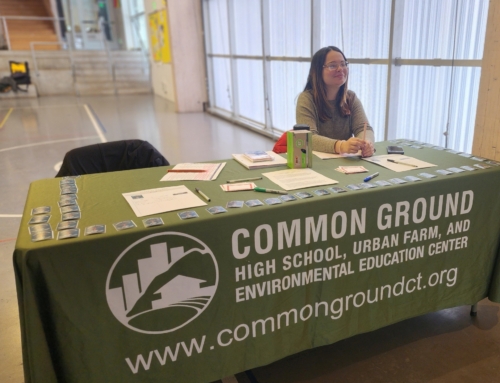

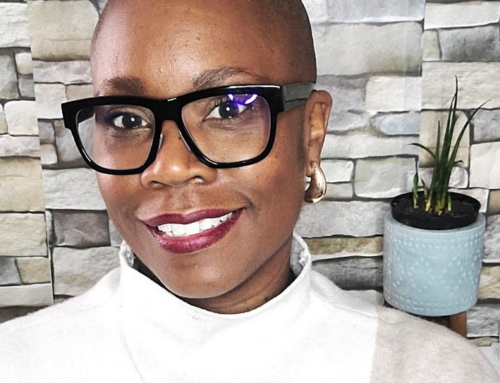
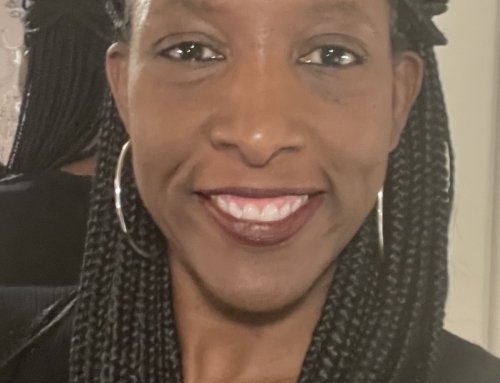

Leave A Comment